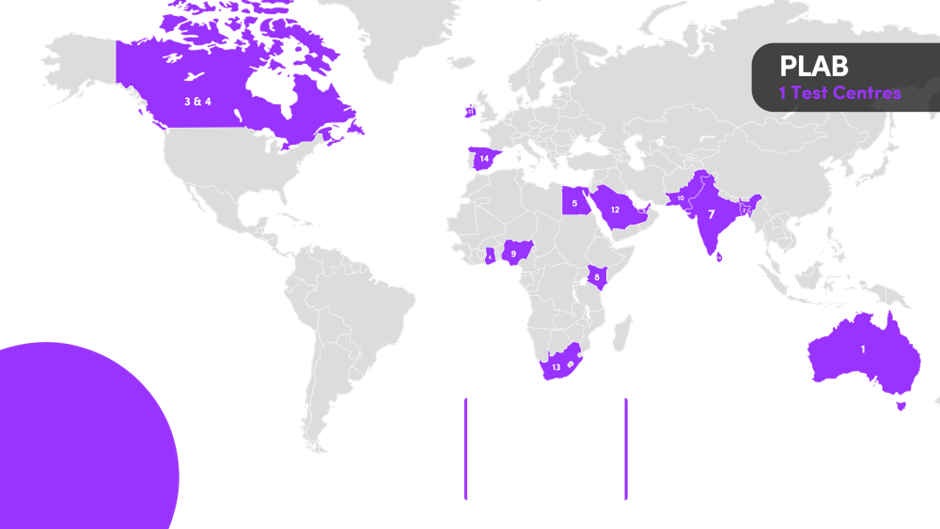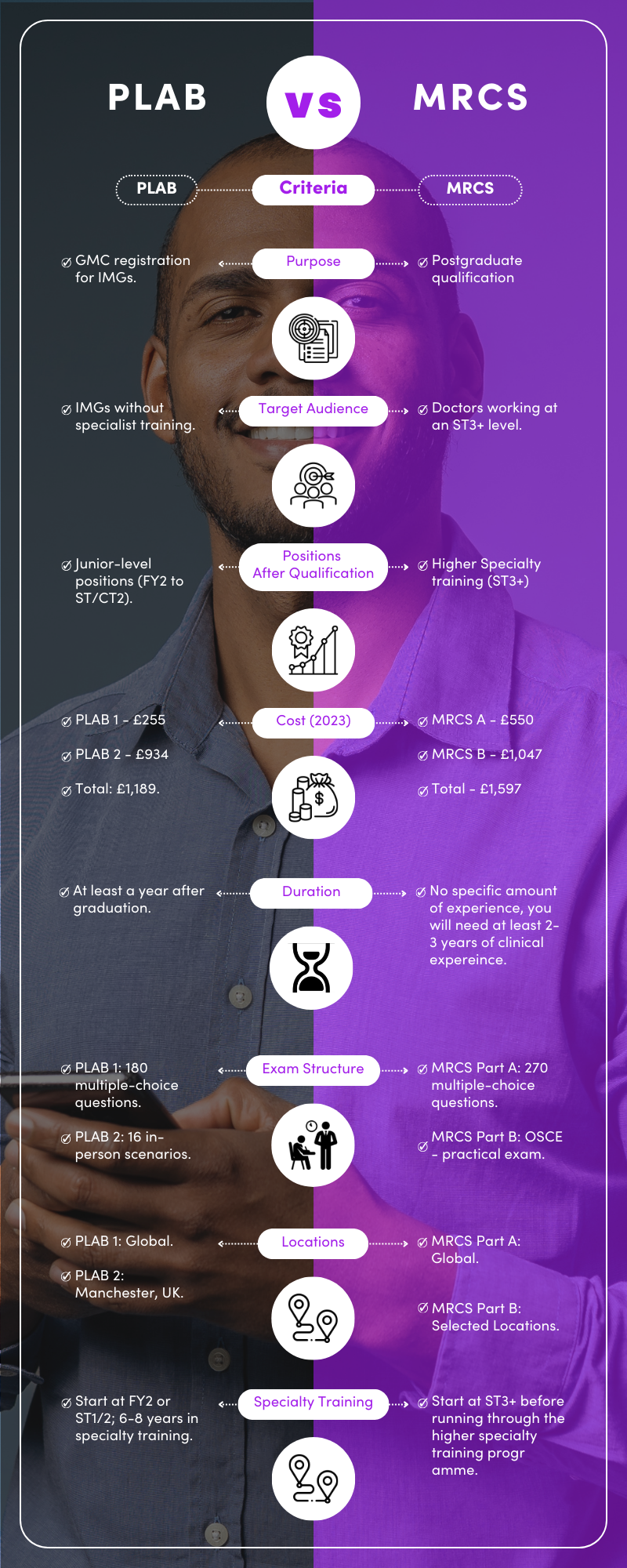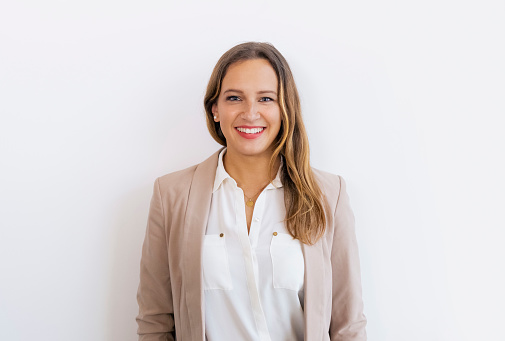MRCS Vs. PLAB
18 Oct, 202316 Minutes
Are you looking at taking your doctor skills overseas? The UK has many great opportunities for international doctors, and you could find a fantastic career in the NHS. Before you can get started on that endeavour, though, you need to get on the GMC register and to do that, you need to prove you have the skills and knowledge needed to practise safely as a doctor.
For IMGs, there are two ways to do this: through PLAB or a postgraduate qualification, such as MRCS. The question is, which one makes more sense for you? To help you understand these two different methods for getting GMC registered and to ensure you choose the right pathway, read on.
PLAB vs MRCS: A Definition
Let’s start with MRCS. MRCS stands for Membership of the Royal College of Surgeons. It’s a set of intercollegiate exams that determine the knowledge, skills, and competencies of trainee surgeons before they can go into ST3-level surgical training. It’s also GMC-registered, so with MRCS, you can enter an ST3-level role in the UK.
On the other hand, PLAB isn’t a qualification in the same way. Instead, PLAB is a set of examinations that IMGs take as an entryway into the UK. The General Medical Council accepts PLAB as ‘proof of knowledge and skills’, meaning IMGs can enter a junior-level post in the NHS with a pass from these exams.
What Jobs Can You Get After MRCS?
MRCS is a highly regarded postgraduate qualification that trainee surgeons obtain before going into ST3+ training. As an IMG, you can use MRCS to get into higher specialty training (ST3+) in a surgery-related specialty. These include:
- Cardiothoracic Surgery
- General Surgery
- Neurosurgery
- Oral and Maxillofacial Surgery
- Otolaryngology (ENT)
- Paediatric Surgery
- Plastic Surgery
- Trauma and Orthopaedic Surgery
- Urology
- Vascular Surgery
- Academic Surgery
After MRCS, you will start at ST3 before running through the higher specialty training programme. During this time, you can earn between £52,530-£92,275 per year.
It’s important to note, however, that all of these surgical specialties are highly competitive. For example, paediatric surgery ST3 had 74 applicants for 11 posts in 2022. Due to this, you might find it easier to gain NHS experience in a non-training post before going into specialty training (even with MRCS), as this will boost your application and help put you on the same playing field as UK doctors who completed foundation-level and core training years in the NHS.
What Jobs Can You Get After PLAB?
The jobs you can get after PLAB typically aren’t as senior as the jobs you can get after MRCS. After completing PLAB, most IMGs go into junior-level non-training posts at level FY2 or ST1. These junior positions often involve working in rotations and gaining a wide range of experience in the NHS. These types of roles typically pay between £32,398-£63,152 per year, depending on level and experience.
Keep in mind that PLAB doesn’t mean you can’t get a more senior role, but PLAB doesn’t look as good on a CV with a lot of experience. If you have a lot of experience from your home country, it might make more sense to get GMC registered with a postgraduate qualification, which proves your higher level of experience. With PLAB, you can still get a senior role and work towards getting into specialty training, but it’s harder and will take more time.
MRCS Vs. PLAB: Which is Cheaper?
Cost is a significant factor for IMGs wanting to relocate to the UK. Naturally, you don’t want to spend more than you have to for exams that grant access to the GMC when you’re already paying for visas, flights, accommodation, and more. So, how much do MRCS and PLAB cost, and which is cheaper overall?
PLAB has two parts. PLAB 1 costs £255, and PLAB 2 costs £934 (as of 2023). This totals £1,189.
MRCS also comes in two parts, with MRCS A costing £550 and MRCS B costing £1,047, totalling £1,597.
With a difference of £408, PLAB is the cheaper option. However, it’s important to keep in mind that while MRCS will cost you more in the short term, it will lead to a higher paying job at the end of it. It’s something to think about!
MRCS Vs. PLAB: How Long Do They Take?
Another factor that might help you choose between MRCS and PLAB is how long each one takes – especially if you are eager to begin your NHS career as soon as possible. The length of time greatly differs between the two.
PLAB is by far the exam that takes the least time, which is one of the reasons it’s so popular with international doctors. To take PLAB 1, you need a primary medical qualification and usually around three months of preparation. For PLAB 2, you just need to have passed PLAB 1. However, it’s also recommended that you have at least a year of experience post-graduation before completing PLAB. Altogether, you can complete these exams in a year or even under.
MRCS is very different. While you don’t need a specific amount of experience to take the exams, you will need around two to three years of clinical experience to stand a chance of passing MRCS A and B. So, when looking at which one takes longer, MRCS is the answer.
Is MRCS or PLAB Easier?
Undeniably, MRCS – being a postgraduate qualification – is the more detailed and in-depth of the two examinations. That doesn’t mean that PLAB is easy by any means, just that MRCS requires more clinical experience and preparation to pass it. PLAB covers general medical topics, including common and acute conditions that most FY2-level doctors are familiar with, while MRCS covers the skills, knowledge, and competencies required for ST3 specialist surgical trainees.

Getting into Specialty Training with PLAB Vs. MRCS
The difference between PLAB and MRCS regarding specialty training is how long it takes to get into it. PLAB leads to a junior-level position in the NHS. Once in a position like this, you’ll need to gain experience and build evidence before starting a specialist programme, whether that’s starting at ST1 in a specialty or doing core training before ST3+. On the other hand, MRCS is a much faster route to specialty training, as the completion of MRCS proves you are on the same level as doctors starting ST3. With this, you can go straight into ST3+ training (although many spend at least a year in a service post to gain NHS experience first).
It is important to keep in mind that PLAB and MRCS can eventually lead to specialty training. Yes – it will take longer with PLAB, as you’ll need to spend time in a non-training post before completing core training, but that doesn’t mean it won’t happen. The main difference between getting into specialty training with MRCS vs. PLAB is how quickly you can do so.
MRCS Exam Structure
The MRCS is challenging and requires a lot of preparation. To gain the Membership of the Royal College of Surgeons, you will need to pass both parts, which are MRCS Part A and MRCS Part B (an objective structured clinical examination).
MRCS Part A
MRCS Part A is a multiple-choice examination that consists of 270 questions. The exam gets split into two papers – one you take in the morning and the other in the afternoon (both including 135 questions). Topics covered include pathology, physiology, pathology, and the principles of surgery.
All MRCS Part A exams are taken online on a computer. As such, you can take this exam from anywhere in the world, which is very handy for IMGs.
MRCS Part B: OSCE
Part B is an objective structured clinical examination. It’s a practical exam that includes seventeen stations that last nine minutes each, all of which have a clinical scenario for you to be examined on. The stations test you on anatomy and surgical pathology, clinical and procedural skills, applied surgical science and critical care, and communication skills.
For IMGs, the OSCE can be the most challenging part of MRCS, as you’re not only assessed on the clinical knowledge you have gained over the years but also your ability to communicate and deliver patient care in front of an examiner. As such, much preparation and practise is necessary for MRCS Part B.
PLAB Exam Structure
Much like MRCS, PLAB comes in two parts. Part 1 is a written paper, whereas Part 2 is a practical exam.
PLAB Part 1
PLAB part one is a written examination that includes 180 multiple-choice questions. These questions are single-best-answer with a total of five potential answers. You get three hours to complete it.
PLAB Part 2
PLAB 2 is an objective structured clinical examination that tests both your communication skills and clinical knowledge, as well as how you apply that clinical knowledge in real-life scenarios. There are eighteen stations you must complete, and you’ll rotate between them throughout the day. At each station, there will be a clinical scenario that you must handle and examiners assessing your ability to do so.
To complete PLAB, you must complete both parts one and part two. Also, be aware that you must complete PLAB part two within two years of passing part one; otherwise, you will have to retake the first one.
As you can see, there are some similarities between the PLAB and MRCS exam structures; they both consist of two parts, and in both exams, the second part is a practical exam. However, that’s about where the similarities end, as the topics covered in each exam differ greatly, with PLAB covering a wide range of medical topics and MRCS covering topics related to the surgical specialty.
MRCS Test Locations
MRCS Part A
MRCS part A is a computer-based test that runs at 5,600 test centres around the world. This includes locations in Africa, Asia, the Middle East, Central Asia, and Europe. To see if there’s a test centre for part A near you, click here.
MRCS Part B
MRCS is a practical exam, and there aren’t as many test centres around the world. Usually, the location of test centres for MRCS Part B depends on the candidates – if there are a lot of candidates taking the exam in one country, for example, there’s a higher likelihood that a test centre will be open there. For 2023, these were where you could take MRCS Part B:
- Cairo
- Glasgow
- Kuala Lumpur
- London
- New Delhi
- Sheffield
PLAB Test Locations
Test locations differ for PLAB for parts one and two, with PLAB 1 being more accessible worldwide.

PLAB Part 1
PLAB part 1 can be taken in multiple locations both in the UK and around the world.
UK Locations:
- Belfast
- Birmingham
- Cardiff
- Edinburgh
- London
- Manchester
- Newcastle
- Oxford
- Sheffield
Overseas Locations:
- Sydney, Australia
- Dhaka, Bangladesh
- Toronto, Canada
- Alexandria, Egypt
- Cairo, Egypt
- Accra, Ghana
- Bangalore, India
- Chennai, India
- Hyderabad, India
- Kolkata, India
- Mumbai, India
- New Delhi, India
- Nairobi, Kenya
- Abuja, Nigeria
- Enugu, Nigeria
- Lagos, Nigeria
- Islamabad, Pakistan
- Karachi, Pakistan
- Dublin, Republic of Ireland
- Riyadh, Saudi Arabia
- Johannesburg, South Africa
- Madrid, Spain
- Colombo, Sri Lanka
- Dubai, UAE
PLAB Part 2
PLAB Part 2 only occurs in one place in the world, and that’s Manchester, UK, which is in the North West of England. That means to complete PLAB, you will need to travel to the UK.
Getting GMC Registered with PLAB or MRCS
If your one goal is to get GMC registered, it should please you to know that both PLAB and MRCS provide access to that – it’s just the type of NHS job that you can get into that’s affected by which one you choose. For GMC registration, you will also need the following:
EPIC-Verified PMQ
You’ll need a primary medical qualification to get on the GMC register, and this qualification will need to be verified by EPIC (Electronic Portfolio of International Credentials). That involves creating an EPIC account for which you will need a number of documents, including information about your medical education (your medical school identification number, for example) and a valid passport.
Proof of Internship
For GMC registration, having spent at least a year in an internship (or equivalent) post-graduation is a must. You’ll need your certification for this as proof, with all the relevant details, such as date and type of internship.
Information of Your Last Five Years
The GMC asks for information about your last five years. That might include time in medical school, internship, study leave, vacation, and anything else – you should include it all.
Certificate of Good Standing
You’ll need a certificate of good standing from the medical authority you are currently working for, as well as any others you have worked for during the last five years.

English Language Proficiency
The GMC requires you to have a good grasp of the English language, and you’ll need to prove this through either IELTS or OET. There are some exceptions, however – for example, if you got your PMQ in an English-speaking country, you won’t need to complete IELTS or OET.
After submitting an application and relevant documents, you must travel to the UK for an ID check. Keep in mind that GMC registration also comes with a price. From April 2023, the application for full GMC registration with a licence to practise medicine in the UK is £166 (but this may change over time).
Should You Take PLAB or MRCS?
So, you now know what PLAB and MRCS are, including the cost, how long they take, and what the exam structure consists of. Are you still wondering which one is best for your pathway?
It’s not an easy question to answer, as you need to think about it on an individual level. PLAB is most common for IMGs for a reason – it’s cheaper and provides a faster entryway to the NHS. Plus, you canM focus on a specialty training programme after moving to the UK. It might take longer, but it still provides a good route to a medical career you’re passionate about.
On the other hand, MRCS makes sense for IMGs who already have gained clinical experience in a surgical specialty. If that sounds like you, then PLAB might not help you with your career development. Instead, taking MRCS will allow you to get straight into ST3+ training in a surgical specialty without having to spend time in a junior-level position. Plus, you’ll earn more as soon as you enter the NHS compared to PLAB.

In Summary
After reading through this guide, you will now understand just how much PLAB and MRCS differ – as well as where they are alike. Here are some of the main key points to keep in mind:
- MRCS is a postgraduate qualification; PLAB is a GMC entryway examination.
- MRCS takes longer to complete and costs more than PLAB.
- MRCS leads to more senior roles in the NHS.
- MRCS is specific to surgery.
- Completing MRCS makes you a member of the Royal College of Surgeons.
Whichever one you choose to take, remember that they both lead to getting GMC registered, allowing entryway into the UK as a licenced doctor.



